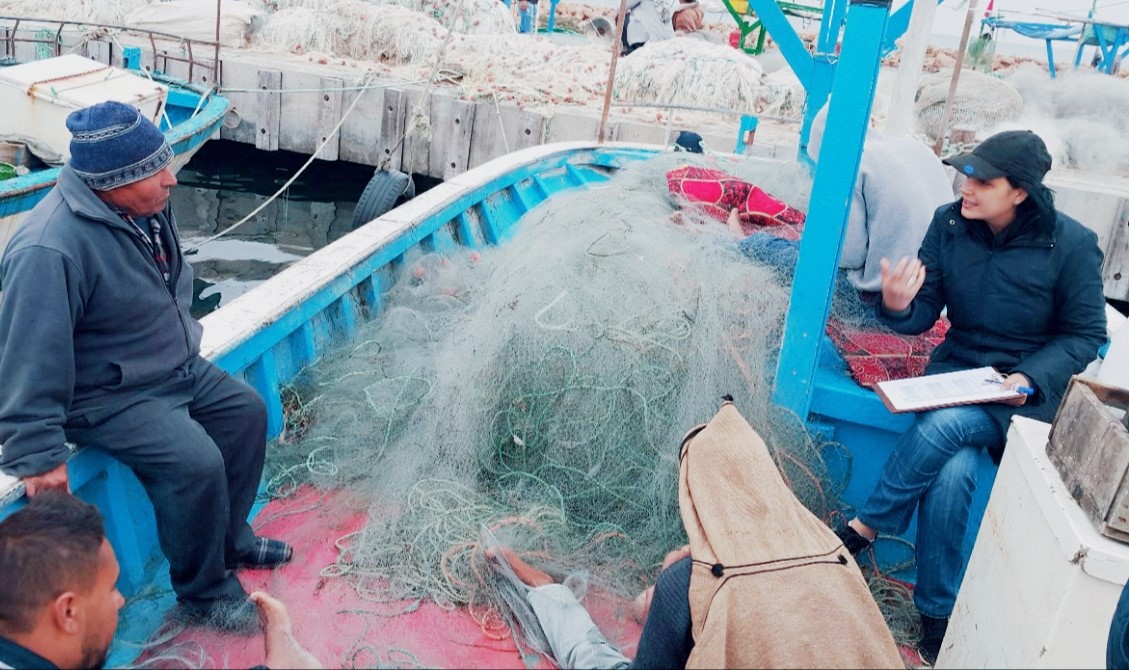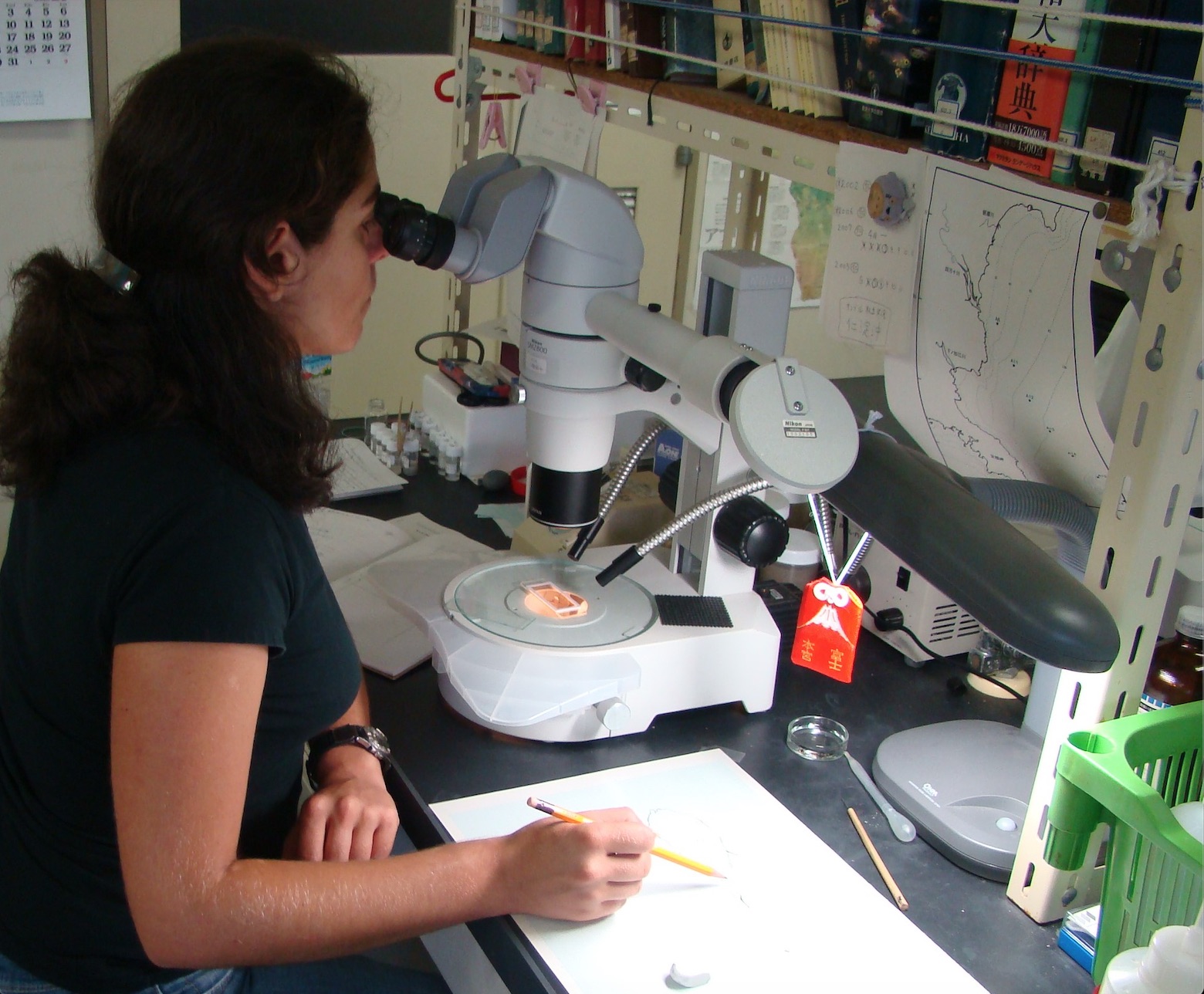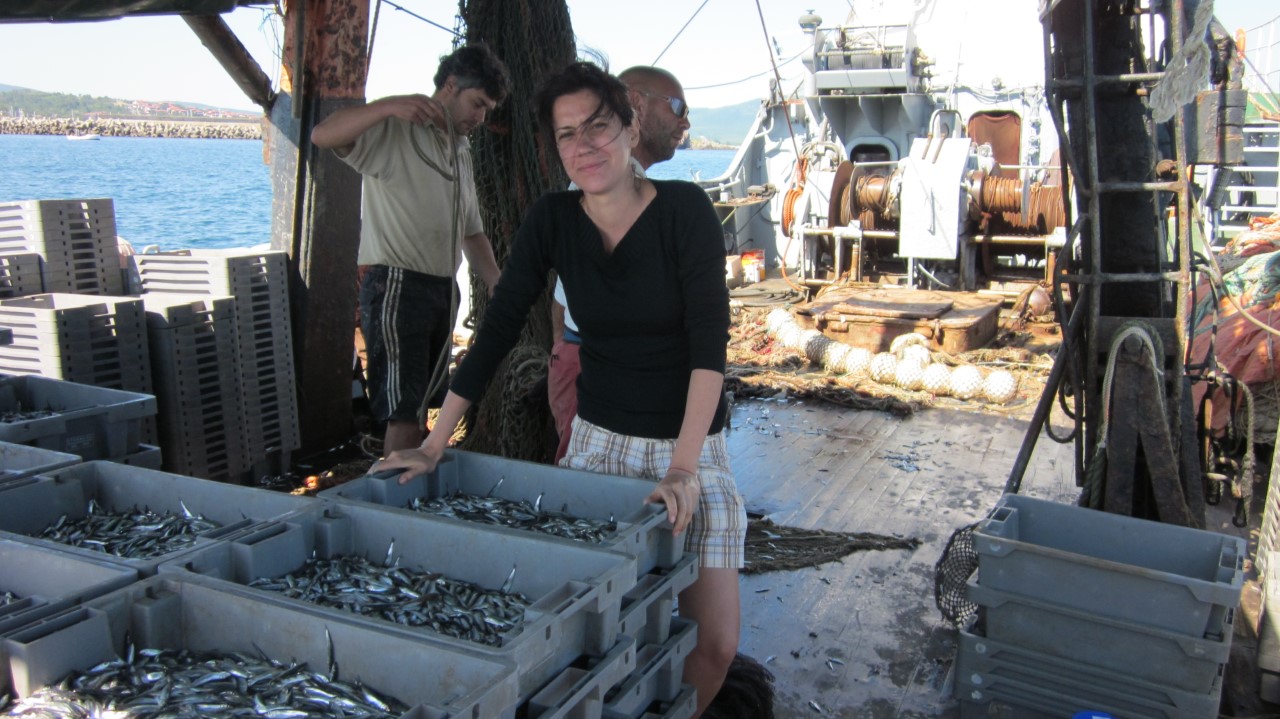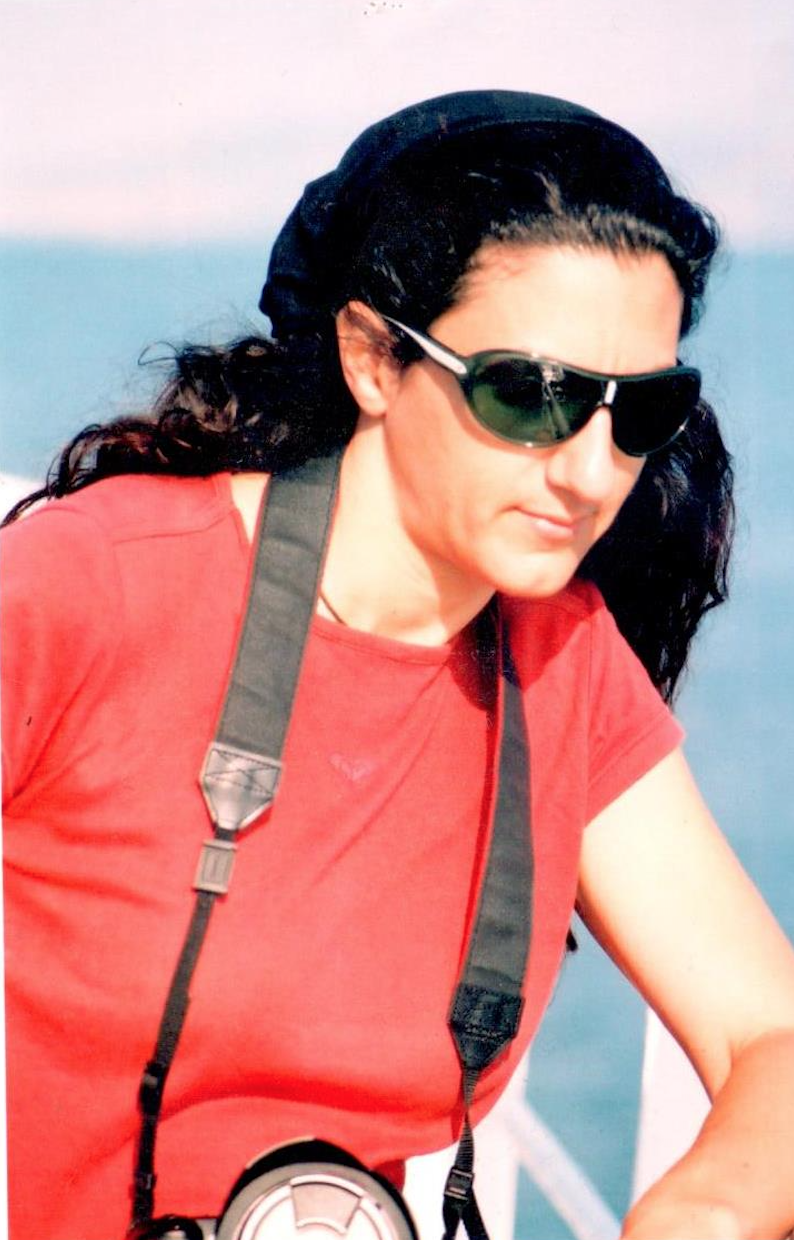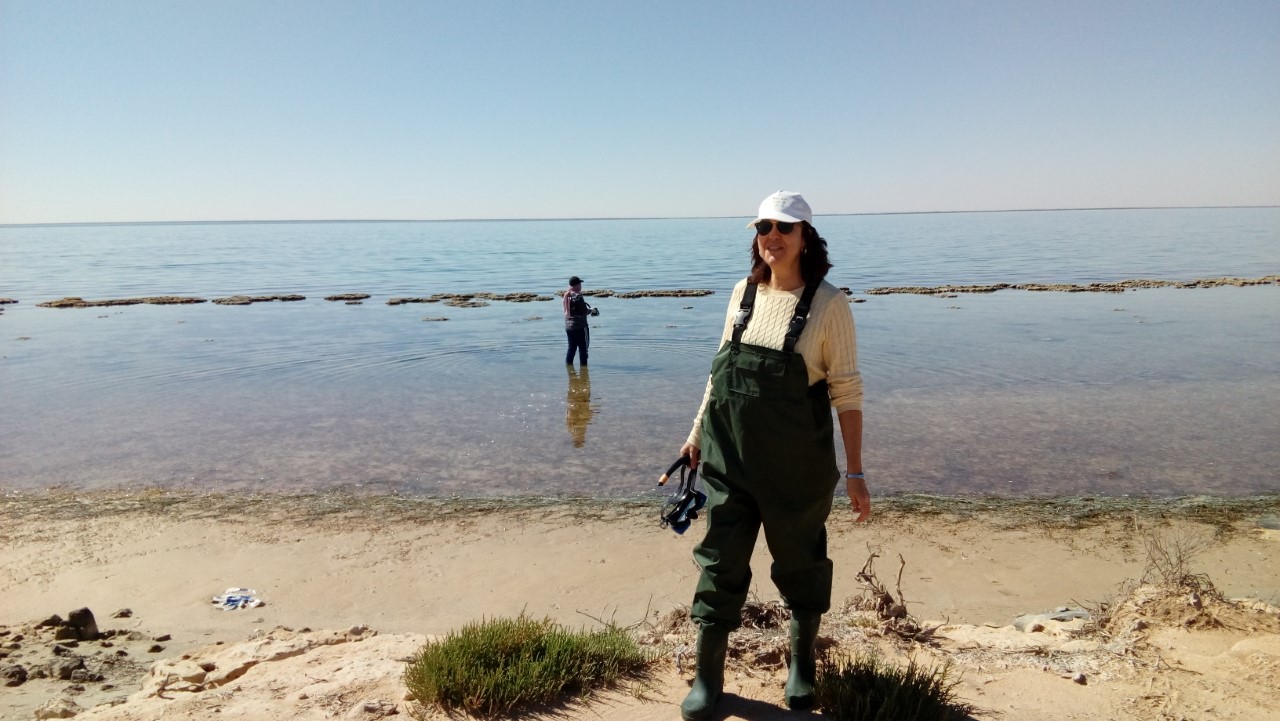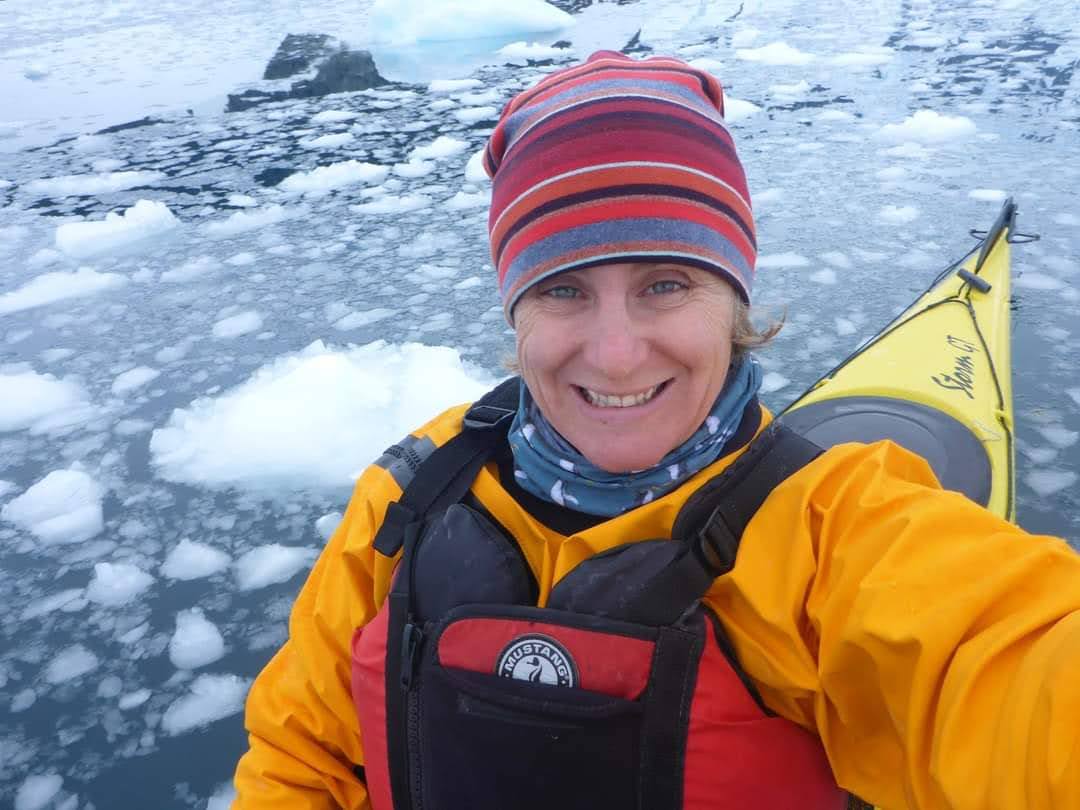Celebrating Women in Science

On International Day of Women and Girls in Science, we want to thank all of the women that contribute to our understanding, protection and management of our ocean's invaluable resources.
At the GFCM, women make up 50% of staff. Their experience, diversity and expertise are crucial to the work that we do. Get to know some of the brilliant minds that are driving our research, management and advice in the Mediterranean and Black Sea!
Advice for future generations of women in science
Olfa BEN ABDALLAH, Tunisian, PhD in Fisheries
"Surround yourself with excellence. Don’t underestimate yourself, aim high and be around people and colleagues who intellectually challenge you."
Nazli DEMIREL, Turkish, PhD in Marine biology
"Anything done without excitement & curiosity makes it very difficult to achieve productive gain. Keep your curiosity alive, don't forget to be surprised."
Yoana GEORGIEVA, Bulgarian, PhD on ecosystem modeling and fish stock assessment
"My advice to the future girls in science is to work hard, be curious, to aim higher and higher and never to give up."
Pilar HERNÁNDEZ, Spanish, PhD in Ecological Modeling
"Science requires a great deal of personal and professional dedication and cannot be approached without passion and commitment. It is only with heart that great achievements are made."
Marianna GIANNOULAKI, Greek, PhD on population dynamics and habitat modeling of small pelagics
"Be insisting to do what they love do, chase their dreams and not give up. I keep saying to my daughter what Dr Mae Jennison says: if you dream it, believe it and work hard you can do anything!"
Betulla MORELLO, Australian and Italian, PhD in Marine biology
"Read; be rigorous, meticulous & honest; stay committed; keep your mind open; think before you ask; check your spelling. Always believe in yourself. Play as hard as you work."
Meet the women making scientific strides at the GFCM
Olfa BEN ABDALLAH, Tunisian, PhD in Fisheries, Researcher in the National Institute of Marine Sciences and Technologies (INSTM, Tunisia).
What does the sea represent for you?
The sea is my playground, my passion, my freedom, my escape, my job and somewhere to which I belong.
Do you think your job within the context of the GFCM makes a difference? Why did you join the GFCM?
My contributing work with the GFCM makes a real difference. It allowed me to be more professional, to improve my skills, to have new knowledge and new contacts and to be more involved in the fisheries field.
What other passions do you have?
Being addicted to discovery, I love to travel and to read. I am also a woman who loves sports.
What advice would you have for the future girls in science?
Surround yourself with excellence. This is especially important for women. Don’t underestimate yourself, aim high and be around people and colleagues who intellectually challenge you. It is also important not to shy away from owning how important your contributions are: that is essential to your personal brand and reputation as a scientist. It’s also nurturing.
Nazli DEMIREL, Turkish, PhD in Marine biology. Associate professor at Istanbul University Institute of Marine Sciences and Management and for the GFCM on the BlackSea4Fish project.
What does the sea represent for you?
Going to the sea surveys, staying on the research vessel for days, wondering "what the color and smell of the sea looks like, what the sea does not resemble a day will offer us that day", all these are the main reasons why I love what I do. After an intense field study on the sea, performing the relevant laboratory analyzes, transferring the raw data to the computer and applying the necessary analytic models, the excitement at the moment, when I see the pattern that emerges gradually, is worth everything.
Do you think your job within the context of the GFCM makes a difference? Why did you join the GFCM?
My main research interests are fisheries research and an ecosystem-based approach. In other words, creating sustainable models for fish stocks with the available data and trying to understand ecological situations. Fishing is not only an activity between a commercial fish species and a fisher, so I am conducting temporal and spatial studies on the levels at which each of the ecosystem components are affected. The vision of GFCM is completely fit with my research aim and giving me chances to learn more and make collaborations for good quality research.
What other passions do you have?
I have always loved biology since my middle school years, but being a marine biologist is the result of meeting good professors working in the field through some coincidences. My main motivation recently is my doctoral students that I have been advising; I learn new things from them every day, sharing their excitement and observing the difficulties I also experienced years ago, gives me different perspectives.
What advice would you have for the future girls in science?
The more the human perception is fed from different sources, the more it develops and the perspectives become richer in establishing connections between conditions and facts. It is important to make relevant readings and to keep up to date, besides, it is also necessary to take an active part in life and to experience differences. Anything done without excitement, curiosity, or overwhelm makes it very difficult to achieve productive gain. Have fun and travel as much as you work; Watch as much as you read, taste, keep your curiosity alive, don't forget to be surprised.
Yoana GEORGIEVA, Bulgarian, PhD on ecosystem modeling and fish stock assessment. Researcher at the Institute of Biodiversity and Ecosystem research – Bulgarian Academy of Sciences and for the GFCM on the BlackSea4Fish project.
What does the sea represent for you?
I was born on the seaside. My father was a professional diver, and I grew up literally at the sea – he used to take my sister and me on different expeditions such as archeological projects, diving training, etc. Therefore, the sea is in my veins, and I choose to make it my profession, too. I cannot imagine living or working far from the sea.
Do you think your job within the context of the GFCM makes a difference? Why did you join the GFCM?
In the last 5 years, I am involved in the Black Sea fish stock assessment activities (SGSABS), patronized by GFCM. I joined GFCM three years ago. I have started as a fishery expert (consultant) for the BS4F project. I am grateful for the opportunity GFCM gave me! In GFCM, I am contributing to all of the efforts regarding the sustainability of the exploited Black Sea fish stocks. The latter are in a state of overexploitation. My work for the project awarded me with many professional contacts, improved my communication skills and knowledge, and highly increased my experience. Thank you GFCM for that!
What other passions do you have?
I love to travel a lot, to ride a bicycle, to skiing and diving. Also, I am visiting aerial yoga classes. I am very keen book reader, but sometimes as a relaxation, I am drawing, too.
What advice would you have for the future girls in science?
The science is the right direction a young person could take. Thanks to the science we are living in this modern word – we have electricity, medicaments, internet, and so many other facilities, discoveries and inventions that make our live easier and better. Hence, my advice to the future girls in science is to work hard, to be curious, to aim higher and higher and never to give up.
Marianna GIANNOULAKI, Greek, PhD on population dynamics and habitat modeling of small pelagics. Research Director at the Hellenic Centre of Marine Research and the Institute of Marine Biological Resources and Inland Waters.
What does the sea represent for you?
The sea for me is freedom. Sitting by the sea, taking a deep breath and keeping your eyes and mind open. Exploring the creatures, the colours, the mysteries underneath the sea is another way to see things.
Do you think your job within the context of the GFCM makes a difference? Why did you join the GFCM?
Being part of the GFCM working groups for more than 10 years I gained new friendships and knowledge. The GFCM provides a unique opportunity to unite the Mediterranean, to bring people together from different cultures and backgrounds towards a common goal: to understand and protect this unique ecosystem. Simply love to see that women from different cultures have a common understanding, have the same passion and smile the same way!
What other passions do you have?
Reading fiction: nothing better than a good book and a glass of wine for a relaxing evening!
Photography: seeing the world through the lens allows you a different perspective and aesthetics. Travel and food: experience the world, people, culture, food, nature.
My daughter: a child is a new way to discover new feelings and abilities you never thought you had.
What advice would you have for the future girls in science?
Be insisting to do what they love do, chaise their dreams and not give up. I keep saying to my daughter what Dr Mae Jennison says: if you dream it, believe it and work hard you can do anything!
Pilar HERNÁNDEZ, Spanish, PhD in Ecological Modeling. Fishery Officer at the GFCM Technical Unit of Málaga, Spain.
What does the sea represent for you?
The sea is my favorite environment to live in, I enjoy any single moment I am in contact with it, both in my spare time and in the job activities. Being marine biologist was always my first choice when I was asked as a kid what I wanted to do for a living, so I can say with pride that I feel very fortunate of being able to work for the preservation of the richness of the sea.
Do you think your job within the context of the GFCM makes a difference? Why did you join the GFCM?
Before I joined the GFCM I used to teach at the University. I used to do research and then I tried to transmit the students the knowledge acquired through the experimental work from the sea and from the laboratory. It was very rewarding, but I always missed the practical application of all this knowledge to the real-life problems. In GFCM I have had the opportunity to contribute to the application of science to the management and conservation of marine resources for the wellbeing of the society and, on an international playground, what makes it very challenging and attractive.
What other passions do you have?
I like all sports related to the sea, sailing, diving, swimming, and also all outdoor activities in contact with nature. Reading, listening to music and singing on a choir are things that also give me many moments of pleasure.
What advice would you have for the future girls in science?
Study languages, do not be afraid of asking questions to smart people to fill your curiosity, never stop reading science and literature. Believe in you and always maintain the interest for learning. Science requires a great deal of personal and professional dedication and cannot be approached without passion and commitment. It is only with heart that great achievements are made.
Betulla MORELLO, Australian and Italian, PhD in Marine biology. Fishery Resources Officer at the GFCM.
What does the sea represent for you?
To me the sea is the constant reminder of the power, complexity and marvel of nature. Personally, it represents play and work: the intertwining of passion and profession, of freedom and commitment. One day I asked someone what they did for a living and they replied that they chose not to answer because they did not want their job to define them; fair enough: in my case I am proud of the fact that my job – and the sea – define who I am!
Do you think your job within the context of the GFCM makes a difference? Why did you join theGFCM?
I am sure it does, at the very least it contributes towards making a difference. I joined the GFCM after 20 years as a research scientist studying fisheries and the impacts of human activities on marine ecosystems - from the UK, to Italy and Australia. An incredible time of my life, doing research on important themes related to the interaction between humans and the marine environment and how to ensure its sustainability. The underlying nagging feeling, though, was always that my research was not having a direct impact and this is what drew me to the GFCM. The work of the GFCM is centered around ensuring sustainable fisheries; it does this by adopting binding recommendations for conservation and management. Sound and rigorous science is at the basis of these recommendations and there is a need to ensure this science is given the right voice. I feel that my past experience may be a useful bridge towards ensuring this.
What other passions do you have?
Sport and nature, sport in nature: hiking, bike riding, sea-kayaking, sailing, kiteboarding and, once upon a time, skiing and trail running. Travel and food: experiencing countries and cultures through their culinary habits.And then there are the books…
What advice would you have for the future girls in science?
Read, read, read; be rigorous, meticulous and honest; stay committed; keep your mind open; think before you ask your questions; check your spelling.Always believe in yourself.And finally, play as hard as you work.
The International Day of Women and Girls in Science was established in December 2015 to recognize the important role women and girls play in science and technology. Today, less than 30% of researchers worldwide are women, and approximately 30% of females study STEM in higher education (UNESCO). This international day is an opportunity to promote gender equality, as well as equal access and participation of women in science. Through the empowerment of women and girls in science, we can not only work towards gender quality but advance our scientific and technical possibilities. Learn more here.







